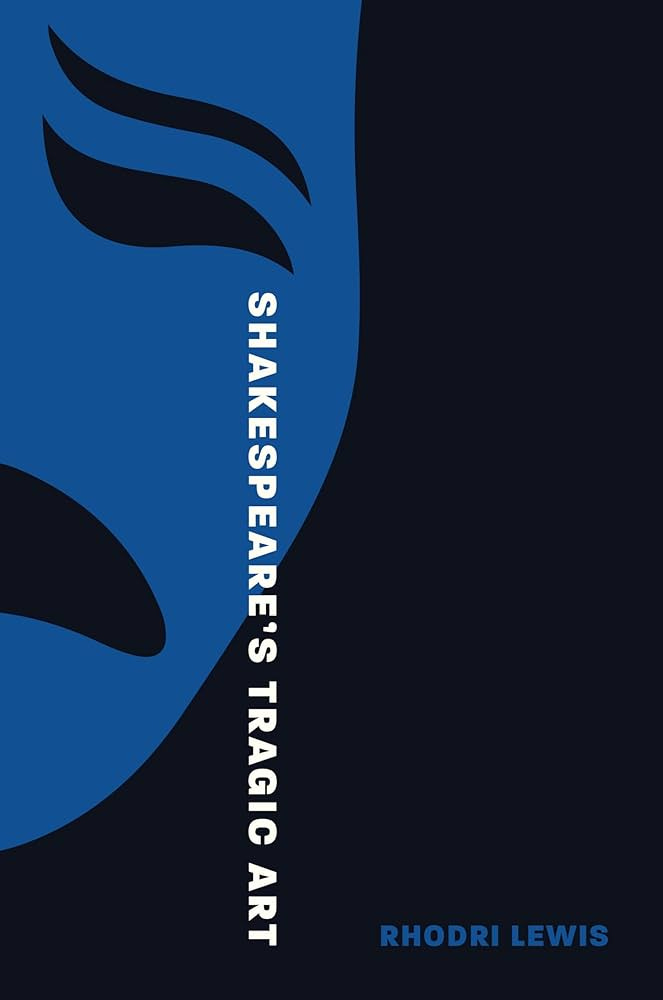Shakespeare’s Tragic Art
by Rhodri Lewis
Remember to cancel your paid subscriptions! Everything is now free, unless you want archive access.
Very few books on Shakespeare are worth reading: Kermode, Bate, Barber, Bradley, Johnson, Hazlitt, Nuttall, Coleridge, Ann Barton. It is hard to be genuinely interesting about a genius. Rhodri Lewis’s book Shakespeare’s Tragic Art, is a new and worthwhile book about Shakespeare as a thinker. Lewis argues that Shakespeare is constantly using dramatic experiments to subvert the idea that rational philosophical systems can explain our lives.
…Shakespeare’s tragedies also try to make their audiences think. In particular, to make them think about the status of human thought as an ineradicably emotional phenomenon that is far from being the province of an unblinking and dispassionate rationality. The Shakespeare of the tragedies goes beyond the familiar claim that reason is the slave of the passions, and asks us to infer that reason as we tend to discuss it is the invention of the passions—of our desperate need to feel that we understand, or have the capacity to understand, our earthly lot. In so doing, he does not imply that the mental phenomenon represented by the word “reason” (something like “the power of intelligence through which human beings process the world”) does not exist, but that reason as generally understood is a heuristic—a fiction that the human mind has settled upon in the attempt to explain itself to itself.
Lewis’s book is short, cogent, informative, and provocative. There are also occasionally humorous moments, such as this passage about Antony, a little commentary on modern academia.
…how better expose the ethics of Ciceronian humanist peer review than to write about someone who—after bringing himself low through ostentatious displays of liberality—came to spurn both civility and civic life? The more so if this character were to make much of the need to be seen, spurning the self-deceiving complacencies of the polis in order to affirm that, in withdrawing from his fellow human beings, he had chosen the correct path?
There are still prominent Shakespeareans who ideologically, reflexively deny the fact that “Shakespeare tells us how to live” or that Shakespeare has “something to tell us”. (When I interviewed Stephen Greenblatt and Adam Phillips, Phillips told me that Shakespeare is more “evocative than informative” and drew out some old saws about astonishing language, the effect people have on each other through their language, etc. That’s fine as far as it goes, and hardly untrue, but it’s a plain ideology rather than a critical reading of the plays. You can watch the little disagreement here if you care to.) Lewis avoids this mistake and is happy to discover and describe the beliefs at play in Shakespeare’s work, noting always that he is an experimental, dramatic thinker who opposes the humanist system of trying to rationalise life. His book is all the better for it. I also came away from this book more convinced than ever that Shakespeare is a (Jamesian) philosophical pragmatist.
I will be interviewing Lewis soon. Leave any questions you have for him in the comments.



Sounds like an interesting book, Henry -- incidentally, this was really why I brought up the passage 'They say miracles are past' in the discussion of All's Well That Ends Well'.
To the list, I'd add John Bayley's book on Shakespearean Tragedy, and William Empson's Essays on Shakespeare.
All the best for now,
Michael
Just used "Hamlet and the Vision of Darkness" in my Masters dissertation at King's College. Ask him what he thinks about Shakespeare's possible access to Florio's Montaigne translations. Also tell him what a good book it is.